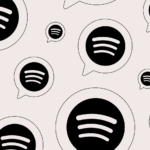Welcome to the Month in Media Roundup—a new series from OpenWeb that gives publishing professionals everything they need to know about what’s happening in their industry. This month, we’ve got news on Axios, Meta, Netflix, Reddit, and more—plus some heartening developments in the independent journalism space.
Axios’ big day
This week saw a rare but welcome bit of good news in the digital media sphere: Axios, the bullet-point-intensive political news site, has been acquired by Cox Enterprises for a staggering $525 million—over five times its projected 2022 earnings.
Why does it matter? Well, for one thing, with digital media titans like Vice and Buzzfeed struggling, it shows that with the right approach, forward-thinking publishers can still strike big online. Jim VandeHei, Axios’ co-founder, put it best when speaking to the Times: “The lesson of the digital era: Chase fads, fantasy and clicks, you fade or famish. Chase a loyal audience with quality information, you can flourish.”
But it’s also worth noting that, per Vanity Fair, Cox was particularly interested in Axios’ slate of local newsletters. As we’ve discussed time and again on our blog, local journalism is having a moment. This sale teaches us something that too many have forgotten: local news isn’t just a public good—it can also be profitable.
Meta pivots again
I hope you’re sitting down, because I’ve got truly some shocking news: Meta is pivoting its business strategy.
Axios has a good breakdown of the situation. In their words, “Facebook now views the entire machine of Facebook’s social network as a legacy operation.” Today, the focus is on competing with TikTok—using massive crowd signals to surface ephemeral, bite-sized clips. And while Instagram is already walking back some of the changes (per Casey Newton’s scoop), it’s clear that this is only a temporary retrenchment while they work out the kinks. For Meta, short video is clearly the future.
After Zuckerberg’s initial announcement, publishers might have wondered: where do we fit into this new vision? The answer arrived just one day later, when—as the WSJ reports—Facebook ended its program of paying publishers for News Tab content.
If you’ve worked in media for any length of time, you’ve been through something like this before. For publishers, adapting to Facebook’s whims is almost baked into the process by now. But this time feels different. We are talking about a difference in kind, not degree. This time around, Facebook is barely even trying to pretend that publishers matter to its business model.
As always, publishers will try to make the best of the new normal. Our advice? Worry less about gaming Facebook, and more about building your own domain. We’ve learned this lesson again and again: trust Facebook, and you’re going to get burned.
QUICK HITS
- Politicians and pundits might fool the public. But can they fool the machines? Poynter dives into Full Fact, a UK-based fact-checking organization that uses AI to fact-check public figures in real-time. The technology is mostly internal for now, but fibbers beware: the robots are coming for you.
- Speaking of deception: a report from media-research company Ebiquity just revealed that advertisers are spending fully 1/10th of their budgets on clickbait sites—a reputed $115 million between January 2020 and May 2022. Given that these sites exist specifically to siphon ad budgets, marketers might want to keep slightly better track of where their money’s going.
- Of course, some marketers have been keeping better track: see the increasing efforts around ‘brand safety’ that have taken hold over the last few years. These have yielded great results—and a whole lot of confusion. Marketing Brew reports that Reddit is banning ads on certain subreddits seemingly at random: r/mensrights makes sense, but r/archerfx? As always, a consistent policy on issues like these can spare publishers and platforms many headaches down the line.
- Certain legacy publishing outlets are experiencing unprecedented success: The Guardian, for one, just recorded its strongest financial results since the doldrums of the 2008 financial crisis. Revenue is up by 13%, and the paper produced a cash surplus for the first time in years. Much of this money comes from the millon-plus digital supporters who make ongoing contributions, which testifies to a recurring theme here at OpenWeb: namely, your community is your most valuable asset.
- That said: let’s maybe hold off on celebrating for a moment. As that Guardian article noted, rough waters are ahead: seemingly everyone agrees that ad-spend is likely to decline in the coming year.
The new independent media
It used to be that, when Facebook pulled a pivot, you’d see a wave of hopelessness ripple through the media class. Granted, no one welcomed this latest news—but this time the response was tempered by something new: hope.
As we’ve discussed again and again on our blog, subscription numbers are rising across the board. Increasingly, publishers are refocusing efforts on building direct, sustainable relationships with readers, instead of playing the big-platform lottery.
Into this new environment comes a wave of new media outlets, many run by traditional-media veterans who’ve taken the lessons of the last few years to heart.
Take this AdWeek report on Verite, a new nonprofit newsroom “designed to serve marginalized groups in and around the city.” Or check out this Washington Post piece on the Redding Sentinel, a new local paper in Redding, Connecticut helmed by Susan Clark, who used to run the Economist’s global digital operations. Or take a look at brash new independent sites like Hell Gate and Defector.
These outlets, and others like them, are working to rebuild the direct relationships with readers that were lost when the big platforms rose to prominence. If all goes well, we very well might end up with a media ecosystem insulated from the whims of Facebook, Twitter, et. al.
As Clark puts it: “Given all the splintering of information and the tribal Facebook groups that people were turning to, our town needed a community news source that was independent.”


